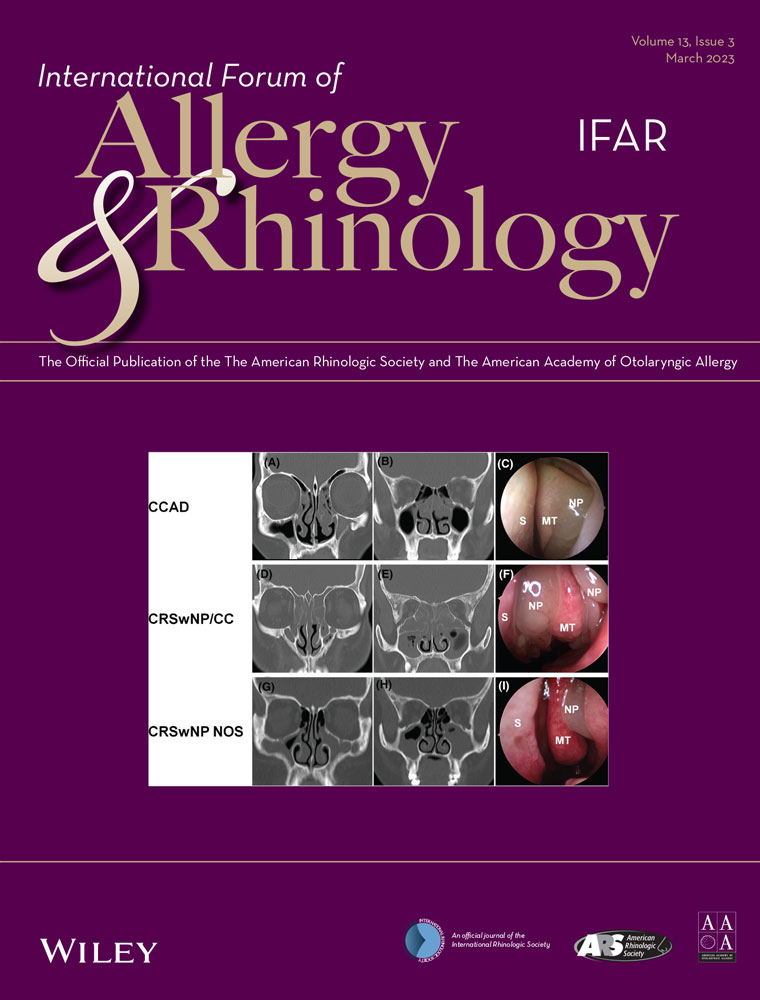Systematic MRI in persistent post-Covid-19 olfactory dysfunction should be reassessed
Abstract
Background
Magnetic resonance imaging (MRI) is the gold standard in the etiological assessment of a persistent olfactory dysfunction (OD). While the utility of imaging in COVID-19-related OD has yet to be established, MRI is recommended in all patients with persistent OD. The high prevalence of the latter after SARS-CoV-2 infection means evaluating this strategy is an important public health matter.
Methods
The main objective was to examine the impact of systematic MRI on the management of patients with OD. All adult patients consulting for persistent OD (>2 months) after primary SARS-COV-2 infection (PCR) between March 2020 and December 2021 were included (n = 67). The secondary objective was to evaluate the relationship between the severity of the OD as measured by psychophysical testing (ETOC) and the volume of the olfactory bulb (OB) measured by MRI.
Results
All patients underwent MRI, and none led to a change in diagnosis or treatment. Among them, 82% (55/67) were considered normal by the radiologist on initial interpretation. There were no significant differences (visual analysis or OB volume) between groups (mild, moderate, and severe hyposmia).
Conclusion
Systematic MRI may be unnecessary in patients whose persistent OD began soon (a few days) after confirmed SARS-CoV-2 infection.




